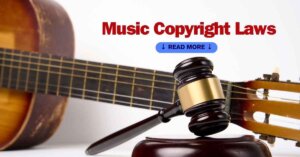High on the spirit of National Press Day, The Speaker of the People’s Consultative Assembly (MPR), Bambang Soesatyo (Bamsoet), has called for the government to formulate regulations for “publisher rights.”
“Bamsoet” outlined the importance of such regulations during a National Press Day event titled “Free Press, Dignified Democracy,” with President Jokowi and other high-ranking government officials as attendees.
The MPR Speaker believes that laws governing journalists’ rights would be crucial in the digital age to protect “the interest of national press” against established platforms such as Twitter or Facebook. He also stressed that regulations on publisher’s rights are needed to build “national sovereignty” in the digital landscape.
Furthermore, according to Bamsoet’s statement, President Jokowi has expressed his support for the enactment of a regulation concerning publisher rights. More importantly, the President has also instructed the Indonesian Press Association and the Press Council to formulate the details of journalistic copyright regulations.
This proposal has raised several questions, mainly on the concept of publisher rights itself. What exactly are publisher’s rights? What could we expect if it were to be implemented in Indonesia?
A brief look on how publisher’s rights are enacted in Europe and Australia could give us a rough understanding of the concept.
Copyright Directive (Europe)
The Directive (EU) 2019/790 on copyright and related rights in the single digital market, or the “New Copyright Directive,” has been implemented in the European Union since the 17th of April 2019. Essentially this law was created to help publishers and writers in protecting the online ownership of their content, mainly articles.
Nowadays, many websites or online platforms act as news aggregators or repost articles as a business model. Of course, this system could trouble the original publishers/creators of the articles, as they have little control over the use of their creations online.
In essence, The Copyright Directive was made to give power to publishers in the digital world. Article 15 of the Directive gives rights to publishers in the EU to demand shares of revenue from aggregator sites that use their content. The original content writers also have the right to demand revenue shares from licensing their publications and content online. However, it’s important to note that this right only applies up until two years after the original publication.
The Directive also regulated some exceptions. Rights that are given to publishers and writers cannot be enforced on:
- Non-commercial use or individual use
- Hyperlinks
- The use of “very short citations.”
- Citations for the purposes of reviewing or critical purposes
News Media Bargaining Code (Australia)
Since February of 2021, Australia has introduced the New Media Bargaining Code, a regulation that essentially has the same purpose as the Copyright Directive in Europe, which is to give online protection to publishers and writers, albeit with a slightly different method.
The Code acts as a code of ethics that requires digital platforms such as Facebook or Google to negotiate a deal with local Australian media and publishers if they wish to link news content to their platform or feature them in search engines. The Code requires digital platforms and the media to make a commercial deal on content publication. If the two parties fail to reach an agreement, an arbiter chosen by the government can decide the final price.
Initially, The News Media Bargaining Code was heavily criticized by Google and Facebook as they felt that the new regulation failed to understand their roles in online news circulation. Facebook even went as far as blocking news articles from appearing in the Australian version of their platform as well as Instagram. This was ultimately reversed after discussions with the Australian government.
Even though it remains to be seen when or whether publisher rights will be implemented in Indonesia, this notion has begun to garner support from the government. This new regulation’s presence can bring significant change to the landscape of Indonesian online publications. Of course, if these regulations become a reality, we will cover them more extensively.
Keep an eye on our social media accounts for the latest news regarding IP, and contact us via ambadar@ambadar.co.id for the best IP-related services.
Sources:






